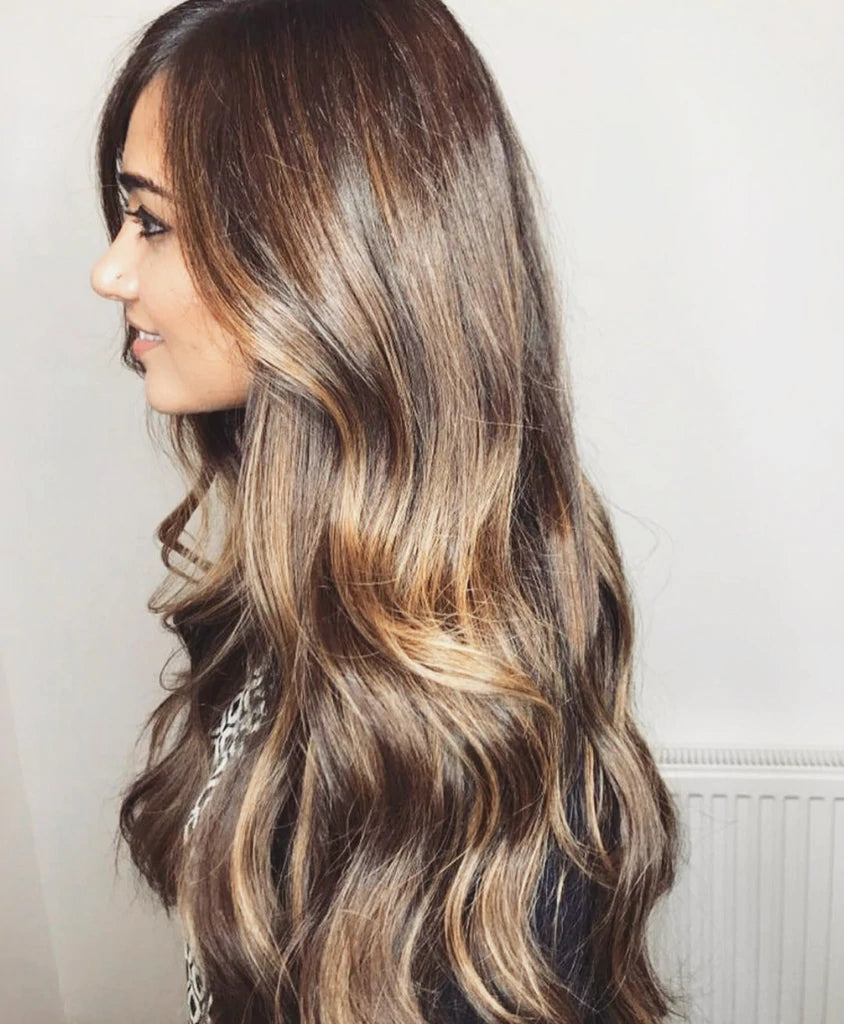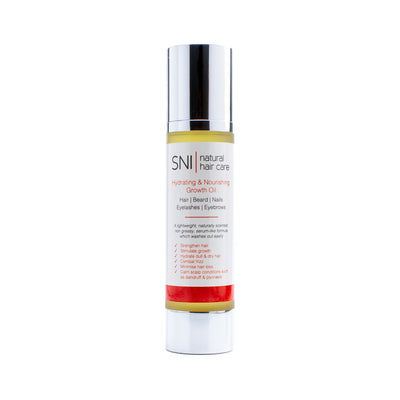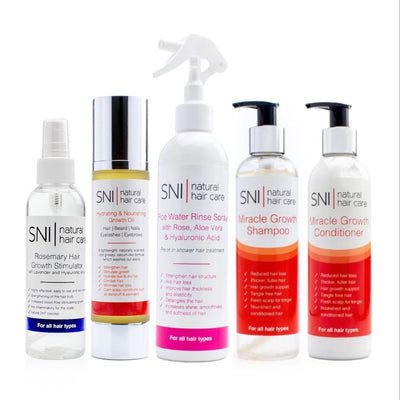Why We Loose Hair When We Are Stressed

How Stress Causes Hair Loss
There are three stages of hair growth cycle; anagen (hair growth), catagen (transition), and telogen (resting). During the final stage of resting, the hair begins to detach from the hair follicle and fall out under the slightest pressure such as hair brushing or pulling for example when styling hair. Extreme or prolonged stress can cause hair to prematurely enter the resting stage and break off more easily. Nevertheless, with relaxation techniques and better nutrition and the best haircare routine, you can expect hair growth to return to normal after a period of 3-4 months.Types of Stress Related Hair Loss
There are three main types of stress related hair loss. With each type of stress related hair loss, the exact link between the hair loss and stress is somewhat unclear.1. Alopecia areata
With alopecia areata, the immune system turns on the hair follicles and causes hair to fall out, sometimes in large chunks. There may be several factors causing this type of hair loss, and stress is suspected to be one of them.2. Telogen effluvium
With telogen effluvium, stress may send a number of hair follicles into a resting phase, stopping the hair from growing. Several months later, the hair attached to the affected follicles may start to fall out suddenly, in greater volume than normal. This is the most common type of stress related hair loss.3. Trichotillomania
Trichotillomania is very different than the previous two, as it involves a person compulsively pulling out their own hair, whether its from their head, their eyebrows or other areas of their body. A person usually develops this condition as a method of coping with stress, anxiety, depression, loneliness or boredom. While stress will sometimes cause the hair loss directly, other times, the stress makes an existing condition worse. In some cases, the hair loss will cause the stress, rather than the other way around.How to Stop Hair Loss Due to Stress
You should know that hair will usually grow back on its own. If hair loss is indeed caused by stress, the major focus of treatment should be on minimising or eliminating that stress. Once the stress is removed, hair should grow back on its own with no need for medication, however the quality and volume of hair can be compromised if a good consistent hair routine is not established. The important thing is to have patience. The growth cycle of hair takes time, and it can be a number of months before you see a significant improvement. Just do your best to avoid stressing about the situation, as this will only make things worse.Reducing Emotional and Physical Stress
Exercise more. Exercise can help you relieve any kind of emotional stress. When you exercise, your body releases endorphins – also known as happy hormones – which help you feel calmer and more relaxed.- The type of exercise you do is up to you – when it comes to relieving stress, try to find something you enjoy, whether it’s walking, running, swimming, cycling, dancing or rock climbing.
- You can also try to incorporate a yoga or meditation class into your weekly routine, as these have been proven to effectively reduce stress levels.
- Avoid doing anything too stimulating before bed. Don’t watch TV, stay away from your laptop and phone and don’t exercise or eat anything. Read a book or have a hot bath instead.
- Improve your sleep by getting into a regular sleep pattern – that is, waking up and going to bed at the same time every day. You should aim to be getting at least 7 to 8 hours sleep a night. Most smartphones have settings to set sleep and electronic break reminders and even reminders to drink enough water!
- If talking to a therapist isn’t something you’re interested in, then at least open up to a trusted friend or family member. There are also several support lines and forums such as mumset.com which you can take advantage off.
Promoting Healthy Hair Growth
Eat healthy. Eating healthy and properlygives your body more energy, enabling it to better cope with stress. Diet also contributes to the strength of hair, making it less likely to fall out.- Eat enough protein. When your hair doesn’t get enough protein, it shuts down growth. As a result, when existing hair reaches the end of its cycle and naturally falls out (in a process known as catagen) it can seem as if you have less hair than normal.
Avoid low-calorie diets. Low-calorie diets often deprive your body of many of the vitamins, nutrients and healthy fats it needs to function properly and maintain healthy hair growth.
- In addition, rapid weight loss (as the result of following a low-calorie diet) can cause major physical stress to the body, which may trigger hair loss.
- Many high-fat, high-calorie foods are actually very good for you, provided you make the right choices. Things like nuts, avocados and oily fish are all high in monounsaturated fat, but they are also very healthy and should be eaten as part of a balanced diet.
Increase B vitamins and decrease A vitamins. B vitamins are necessary for healthy hair growth, so if you’re not getting enough of them as part of your diet, your hair could be affected. On the other hand, excess vitamin A can trigger hair loss, so you may need to cut back.
- In order to naturally increase your intake of B vitamins, eat more fish and lean meat, starchy vegetables and non-citrus fruits.
Increase protein intake
Protein is the building blocks of our living cells. When there is a deficiency in protein, our bodies ration out protein to the more important vital organs leaving our skin, nails and hair to suffer.
a vet good localised treatment for hair is our DIY #proteinboostmask which you can find instruments for on our instagram using the hashtag or on our product information page for our bestseller SNI natural hair oil.Don’t overstyle your hair. Overstyling is one of the biggest issues when it comes to healthy hair. Nowadays women are obsessed with blow-drying, straightening and curling using heated styling tools. These wreak havoc on the condition of hair.
- Try to minimize the use of styling tools.
- You should avoid playing with your hair too much.
- Don’t brush your hair too often either.
- Be careful when using color treatments on the hair, as they can quickly dry, damage and over-process your hair.
Take good care of your hair. Taking good care of your hair will contribute to its overall health, making it stronger and less prone to fall out.
- Switch over to plant based sulphate free shampoo conditioners. Make sure you avoid green washing products which falsely advertise a product as natural but use a very small percentage of the highlighted ingredient amongst many chemicals.
- Avoid washing your hair too often, as this can strip hair of natural oils, causing it become dry, brittle and prone to breaking as well as causing an oily scalp as the scalp compensated by producing more sebum which is the protective oil barrier. Every two to three days is a good schedule for most hair types.
- Also avoid using hair products with too many chemicals in them. Shampoos containing sulphates should be avoided as these are known to decrease follicle size and cause oily scalp and dry hair, and more natural, organic ingredients should be used.
- Keep your hair in good condition by getting it trimmed every six to eight weeks. This eliminates split ends and helps your hair to look and feel great.
- Dont forget the first step of any haircare is brushing your hair to avoid knots and tangles which can cause hair breakages and hair to be pulled out when brushing.
More from:
Hair Loss




